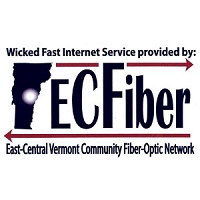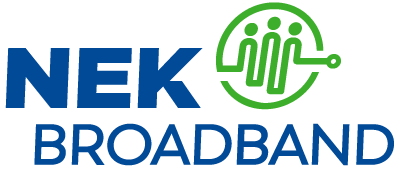
Fast, affordable Internet access for all.

A new documentary, produced by the Vermont production company Well Told Films and the Vermont Community Broadband Board (VCBB), tells the uplifting story of how community-minded Vermonters came together to solve a common challenge: the lack of high-speed Internet connectivity across the Green Mountain State.
“Connected: Vermont’s Grassroots Effort for Rural Broadband” recently premiered at the Capitol Theater in Montpelier, giving viewers a front-row seat at how hundreds of volunteers (and later state leaders) rallied around the emergence of Communications Union Districts (CUDs) as the state's primary vehicle to bring high-quality Internet service to every resident and business in one of the most rural states in the nation.
The 35-minute film brings to life the story of how a community-based solution to solving the digital divide in Vermont came to be, while showcasing all of the progress that's been made since ECFiber, the state's first CUD, was established in 2007.
It begins with the celebration of ECFiber completing its fiber-to-the-home (FTTH) network last year, an event at which U.S. Sen. Peter Welch succinctly summarized why the community broadband movement in Vermont was, and is, necessary:
"All this started with what at the time was really a radical idea – that if we in rural Vermont were going to depend on the big telecommunication companies to wire our homes to get us Internet, we'd be waiting until our grandchildren had grandchildren."
Municipal finance is not for the weary.
But for the wise – at least according to the number-crunchers enmeshed in that world – one particular sliver of municipal finance (issuing bonds) has long been a viable way for local communities to finance the construction of municipal broadband networks. And as one Communication Union District in Vermont has discovered, bonding is better – when it’s rated.
Shining a light on bond-backed municipal broadband projects is the recent announcement that ECFiber, Vermont's first Communications Union District (CUD), obtained a BB rating from Standard & Poor Global, the nation’s preeminent credit rating agency. The rating will allow ECFiber to pay lower borrowing costs to complete a network expansion project.

“This is a historic moment,” Stan Williams, ECFiber’s municipal finance advisor said in a prepared statement. “For the first time, a CUD will be issuing a rated bond, which means that many more investors will be competing to buy those bonds, lowering the interest rate. ECFiber has been managed for its entire existence to reach this goal. It’s hard to overstate the importance of this achievement.”
East Central Vermont Telecommunications District governing board chairman F. X. Flinn added that the new bond rating "was made possible by over 16 years of grass-roots persistence, driven by a conviction that working together, our region could overcome the failure of the marketplace to offer decent broadband to all our homes and businesses."
It was a big week for ECFiber as Vermont’s first – and oldest – Communication Union District (CUD) celebrated lighting up the last hub of its 1,500 mile-network in White River Junction.
To mark the occasion of connecting the “golden patch cord” that will extend high-speed Internet service to eight more communities in the Upper Valley region, White River Junction’s VFW Hall was packed this past Tuesday with CUD officials, local and state leaders, enthusiastic residents, and U.S. Sen. Peter Welch. They were there to celebrate what ECFiber officials liken to “the Golden Spike moment tying the first transcontinental railroad together.”

After a 30-piece band played marching tunes, ECFiber Chairman F.X. Flinn marched to the podium to describe the meaning of the moment.
"It’s come to fruition today with a lighting of the White River Junction hub," he said. "This is the last piece of the puzzle for the network we originally envisioned that would bring world-class broadband to every home and business in the 23 member towns that originally voted town meeting day 2008 to create ECFiber."
Sen. Welch, an ECFiber subscriber who also spoke at the event, credited the state’s community broadband approach as the linchpin to solving the state’s digital divide:
“If we in rural Vermont were going to depend on the big telecommunication companies to wire our homes and get us Internet, we’d be waiting until our grandchildren had grandchildren. It wasn’t going to happen.”
Eight More Towns Join CUD
The United States Department of Agriculture (USDA) has awarded a $17.5 million grant to NEK Community Broadband (NEK Broadband), providing another shot in the arm for Vermont’s fast-growing collection of Communications Union Districts (CUDs). Such CUDs continue to play a starring role in Vermont’s efforts to finally conquer the digital divide.
NEK Broadband’s latest grant comes from the USDA’s ReConnect Loan & Grant Program, which helps defray the costs of network hardware and broadband deployment to rural and traditionally underserved U.S. markets.
The program this week doled out an additional $714 million in grants and loans to projects across 19 states.
NEK Broadband officials say its $17.5 million award will be combined with a $5.8 million investment to deliver affordable fiber access to 3,295 homes, 94 businesses, 183 farms and 11 educational facilities across 22 towns in Orleans, Caledonia, and Essex counties in Vermont.

“For too long, large pockets of our state have been denied this critical resource because companies haven’t found it profitable enough to invest,” Vermont Senator Bernie Sanders said in an announcement of NEK’s latest grant. “This federal funding is transformative, because the money is going directly to the very communities who will benefit, instead of having to go through those who care more about profits than delivering service.”